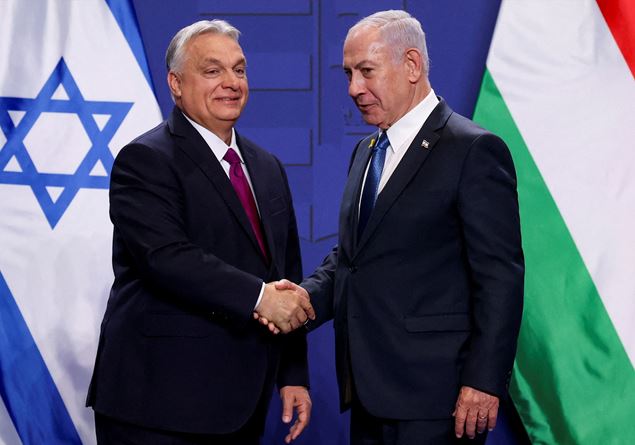The chief prosecutor of the International Criminal Court said on Thursday he had requested arrest warrants for the supreme leader of Afghanistan’s Taliban government and the country’s chief justice for their “unprecedented” persecution of Afghan women and girls.
The prosecutor, Karim Khan, said in a statement that the Taliban’s leader, Sheikh Haibatullah Akhundzada, and the head of Afghanistan’s supreme court, Abdul Hakim Haqqani, had committed a crime against humanity: “persecution on gender grounds.”
“Afghan women and girls, as well as the LGBTQI+ community, are facing an unprecedented, unconscionable and ongoing persecution by the Taliban,” the statement said.
Since US troops pulled out of Afghanistan in 2021 and the Taliban regained power, the fundamentalist rulers have issued ever-tightening codes of vice and virtue laws that have driven women entirely from public life and from many private activities.
The edicts, presented as Muslim religious rules, have excluded women from jobs and almost all public areas. In 2023, the Taliban shut all beauty salons — one of the few public places left in the country where women could congregate outside the home. Afghanistan also barred girls from high school and women from university education — the only country to do so.
A United Nations rapporteur has described the extreme regime as “gender apartheid.”
Many women have fled the country, and others are seeking ways to escape from their confined way of life.
The prosecutor’s move is the first legal filing by the court, which is based in The Hague, to include the plight of LGBTQI+ groups in a discrimination complaint. But it is not the first international legal attempt to pressure the Taliban to loosen their grip on Afghan women’s lives.
Last year, Australia, Canada, Germany and the Netherlands took the Taliban to the International Court of Justice, the United Nations’ highest court, and denounced them for “gross and systematic” violations of the UN convention, ratified by Afghanistan, that forbids all forms of discrimination against women.
Other countries have since joined this case, which is winding its way through the World Court and is expected to lead to public hearings and, possibly, court orders.
Although the Taliban have ignored international pressure to change their extremist treatment of women, activists hope that the group would make concessions as the country’s leaders seek to normalize diplomatic relations or obtain international aid. They say that international court cases are important to keep the light of Afghan women on the agenda.
“Afghan women and girls finally have a chance to secure justice for the cruelty they have endured since the Taliban’s takeover,” said Binaifer Nowrojee, president of the Open Society Foundations, independent groups working for justice, democratic governance and human rights. “Without the ICC and other international tribunals, Afghan women and girls would have nowhere else to turn to hold the Taliban accountable.”
Mr. Khan’s request for warrants is part of his broader investigation into alleged Taliban crimes. In his brief, the prosecutor said that his office would seek further warrants for other senior Taliban officials for broad attacks against the Afghan civilian population.
A panel of three judges issues ICC arrest warrants, a process that can take months. Lawyers familiar with the court said these warrants might emerge faster because the edicts discriminating against Afghan women in violation of international law have been openly issued by the Taliban rulers.
The leader of the Taliban has not been known to leave the country, so if the warrants are issued, chances are slim they could be executed.
Mr. Khan said in his statement that opposition to the Taliban is “brutally repressed” through “crimes including murder, imprisonment, torture, rape and other forms of sexual violence, enforced disappearance and other inhumane acts.” He compared the oppression and violence to the Taliban’s earlier crimes, when they were previously in power.
The ultraconservative activists rose to prominence in the aftermath of the withdrawal of invading Soviet troops, capturing the capital, Kabul, in 1996. An alliance of international forces led by the United States invaded in 2001, tracking Osama bin Laden, the leader of Al Qaeda . The bombing campaign led to the Taliban’s retreat.
The ICC’s investigations into crimes committed in Afghanistan first began in 2007 and had long lingered on the back burner. They have included accusations of misconduct by US troops, including extrajudicial killings and torture.
But Mr. Khan surprised many when, soon after taking office in 2021, he announced that he would “de-prioritize” the investigation into US personnel. He said his decision was based on his need to use limited resources efficiently. That essentially shed the US component of the inquiry.









